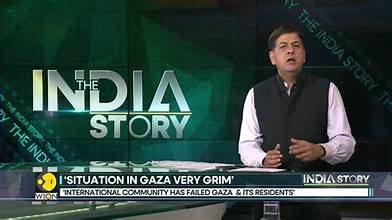In a recent statement, a senior military leader, Field Marshal [Name], issued strong remarks regarding India’s alleged role in creating unrest within the region. The Field Marshal accused India of persistently pursuing policies that undermine peace and stability in South Asia, particularly targeting Pakistan and neighboring nations through political, economic, and military maneuvers.
The Context of the Statement
South Asia has long been a hotspot for geopolitical tensions. With historical disputes, including the long-standing Kashmir conflict, trade disagreements, and water-sharing disputes, relations between India and its neighbors have remained fragile. Against this backdrop, the Field Marshal’s comments highlight concerns within Pakistan’s defense and diplomatic circles about India’s regional strategies.
The statement comes at a time when several incidents along the Line of Control (LoC) have reignited discussions about cross-border violations. Reports of ceasefire breaches, military build-ups, and diplomatic hostilities have once again drawn attention to the volatile nature of regional relations.
Accusations of Destabilizing Policies
According to the Field Marshal, India’s actions are not isolated events but part of a broader strategy aimed at maintaining regional dominance and disrupting peace initiatives. He pointed to the following patterns:
- Cross-Border Aggression – Continuous ceasefire violations along the LoC are seen as a deliberate attempt to escalate tensions.
- Political Interference – Alleged involvement in influencing political environments in neighboring states to serve Indian interests.
- Economic Pressure Tactics – Efforts to block trade routes, delay regional agreements, and impose unfavorable economic conditions.
- Propaganda Campaigns – Using media and diplomatic channels to discredit other countries in the region.
The Field Marshal emphasized that such actions not only destabilize Pakistan but also threaten the broader stability of South Asia.

Impact on Regional Peace
South Asia is home to nearly one-fourth of the world’s population, and instability here has global consequences. The Field Marshal warned that India’s continued approach risks:
- Derailing Peace Talks – Distrust between countries makes negotiations difficult.
- Encouraging Arms Race – Regional powers may feel compelled to increase military spending at the cost of development.
- Economic Setbacks – Cross-border trade, investment opportunities, and collaborative projects suffer.
- Humanitarian Concerns – Border communities face displacement, fear, and loss of livelihoods.
He stressed that regional stability is essential for economic growth, poverty alleviation, and sustainable development.
Pakistan’s Stance
Pakistan’s military and diplomatic leadership have repeatedly called for peaceful dialogue to resolve disputes. The Field Marshal reiterated that Pakistan remains committed to peace but will not compromise on sovereignty or national security. He underscored the importance of unity within the country and the need for strong international partnerships to counter destabilizing actions.
According to him, Pakistan is prepared to defend itself against any aggression while also keeping diplomatic channels open. The dual approach of deterrence and dialogue, he noted, is the only viable path forward.
Call for International Attention
The Field Marshal urged the international community to recognize the risks posed by India’s alleged actions. He appealed to global powers, the United Nations, and regional organizations to take notice of ceasefire violations and other measures that escalate tensions.
He also encouraged the media and civil society to play their role in promoting transparency and exposing destabilizing agendas. Without global attention, he warned, smaller nations in the region might face political and economic marginalization.

The Way Forward
While the Field Marshal’s statement reflects deep mistrust, it also highlights the need for comprehensive conflict resolution. For South Asia to progress, both Pakistan and India must engage in sustained and sincere dialogue. Confidence-building measures, cross-border cooperation, and cultural exchange programs can help bridge divides.
However, dialogue alone cannot succeed without a commitment from all sides to avoid provocations. Regional stability requires restraint, mutual respect, and the political will to prioritize peace over rivalry.
Conclusion
The Field Marshal’s remarks underscore a significant concern in South Asia’s security landscape — the belief that India’s actions are deliberately crafted to create instability. Whether through military posturing, political interference, or economic pressure, these moves are seen as obstacles to lasting peace. Pakistan, according to the Field Marshal, will continue to seek diplomatic solutions but remains prepared to defend its sovereignty.
In a region as interconnected as South Asia, the path to peace is narrow but essential. Without it, the cycle of mistrust and conflict will continue to hold back the potential of billions of people.



